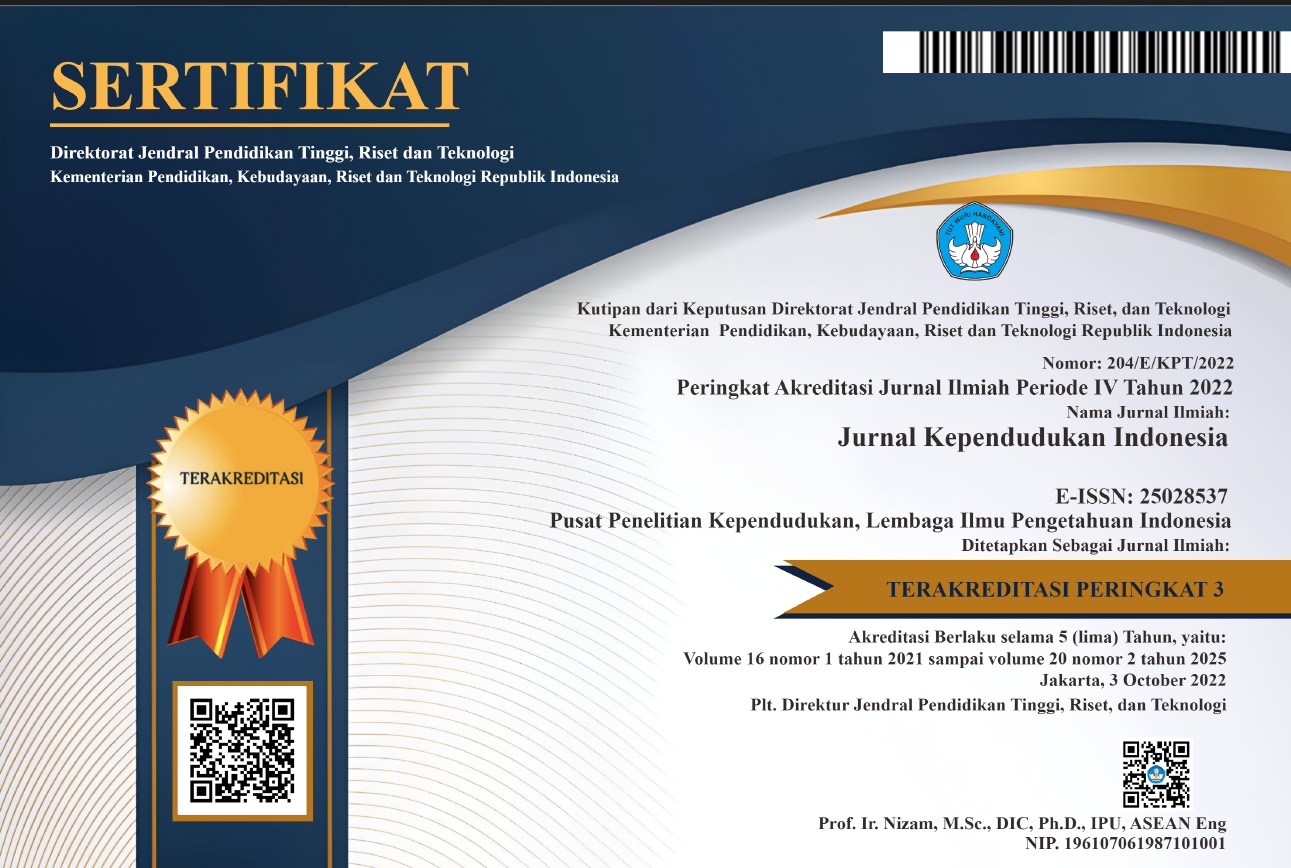Perbandingan determinan perkawinan anak perempuan berdasarkan status kemiskinan di Provinsi Maluku Utara tahun 2019
DOI:
https://doi.org/10.55981/jki.2023.1698Keywords:
poverty, child marriage, binary logistic regressionAbstract
Child marriage is the first marriage performed before the age of 18. The main factor of child marriage is poverty. North Maluku is a province with a prevalence of child marriage above the national rate but lower poverty than the national rate. So, the purpose of this study is to determine the differences in the determinants of child marriage based on poverty status in two units of analysis, and those are women who have been married aged 15-24 years in general and those who are children in the household. The data source of this research is March 2019 Susenas and analyzed using descriptive and inferential analysis, that is, binary logistic regression analysis. For women in general, working status does not affect child marriage in poor women and affects non-poor women. Child marriage also tends to occur in poor women in urban areas and non-poor women in rural areas. For women with children, access to information affects child marriage for poor women and does not affect non-poor women. In addition, child marriage tends to occur in poor women with highly educated parents and non-poor women with low educated parents. The government can focus on poor and low-educated women to reduce the prevalence of child marriage.
Downloads
Published
How to Cite
Issue
Section
License

This work is licensed under a Creative Commons Attribution-ShareAlike 4.0 International License.

